What do you do when you see water leaking through concrete slab or perhaps water gushing out from a basement concrete wall or floor? The quickest and most effective wall is to do an injection of chemical resin.
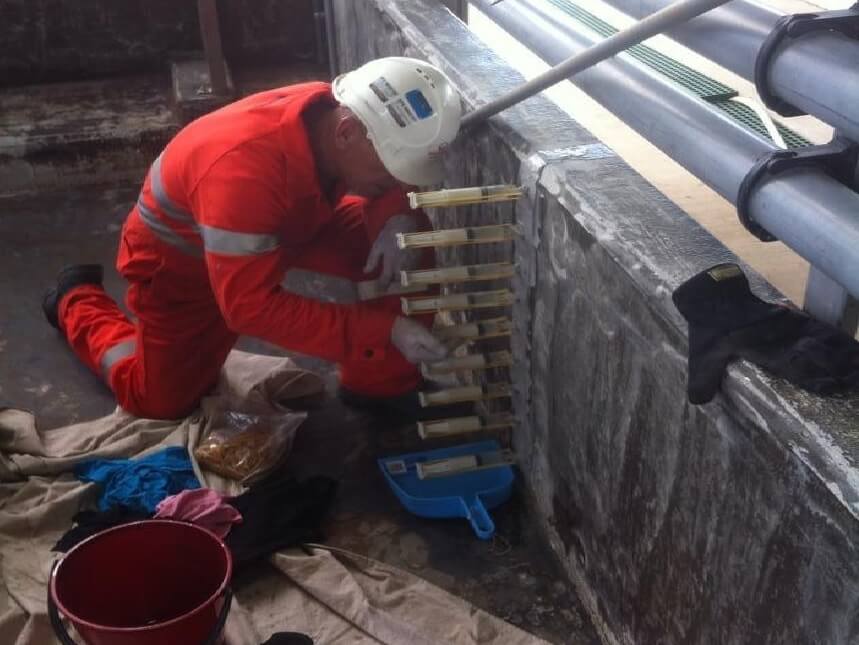
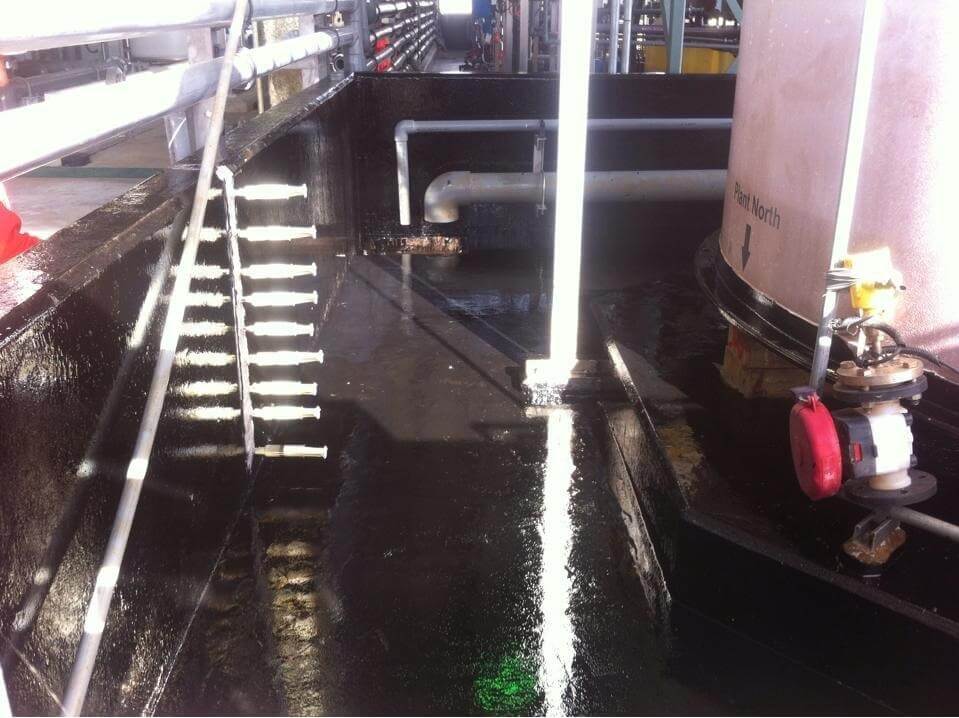
Polyurethane Injection
This type of injection (sometimes referred to as urethane injection) is arguably the most common type of injection used for repairing basement leaks and water stopping generally, due to its versatility. It is used exclusively for stopping leaks in poured concrete foundation walls and structures. When water stopping is required in subway tunnels and mineshafts, the cracks and rock fissures are injected with polyurethane (also referred to as grout) - so you know this crack repair method works under real-life conditions. It should be noted that in some instances epoxy crack injection is a better choice to repair foundation cracks; particularly structural foundation cracks.
How Polyurethane Injection Works?
Polyurethane injection typically involves a high pressure (typically 1500-3200 psi) injection of activated polyurethane resin through injection packers hammered into drilled holes into poured concrete basement foundation walls. Like epoxy, the injected resin travels through the entire thickness of the foundation wall (typically 8") and expands and solidifies within the cavity thereby eliminating the cavity and preventing water from leaking into your basement. Note: Polyurethane can also be injected at a lower pressure using a process virtually identical to that used for epoxy crack injections.

Before shot of leaking basement

After shot. No more leaks

Different methods are sometimes used to achieve the goal of water stopping.
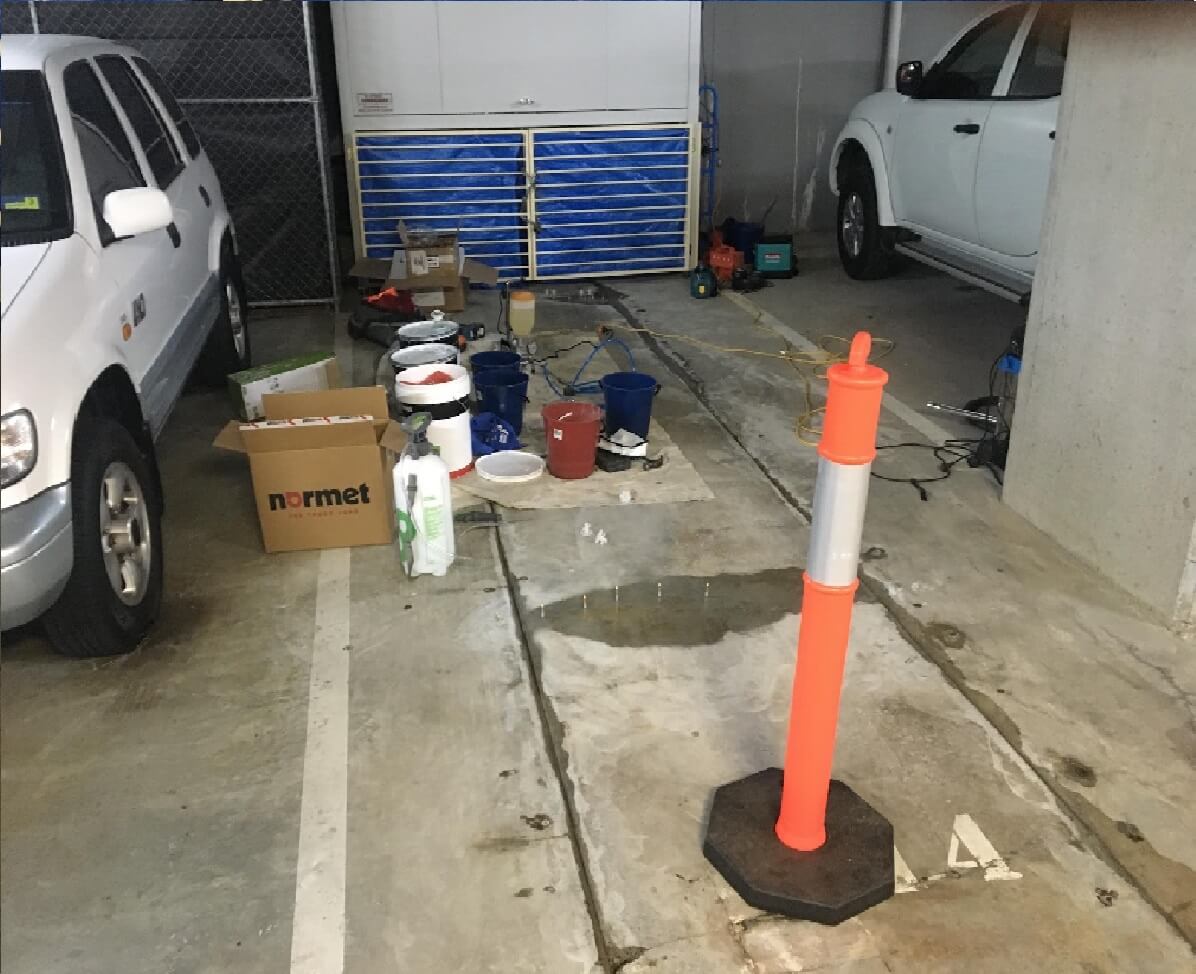
The process is clean and time efficient.
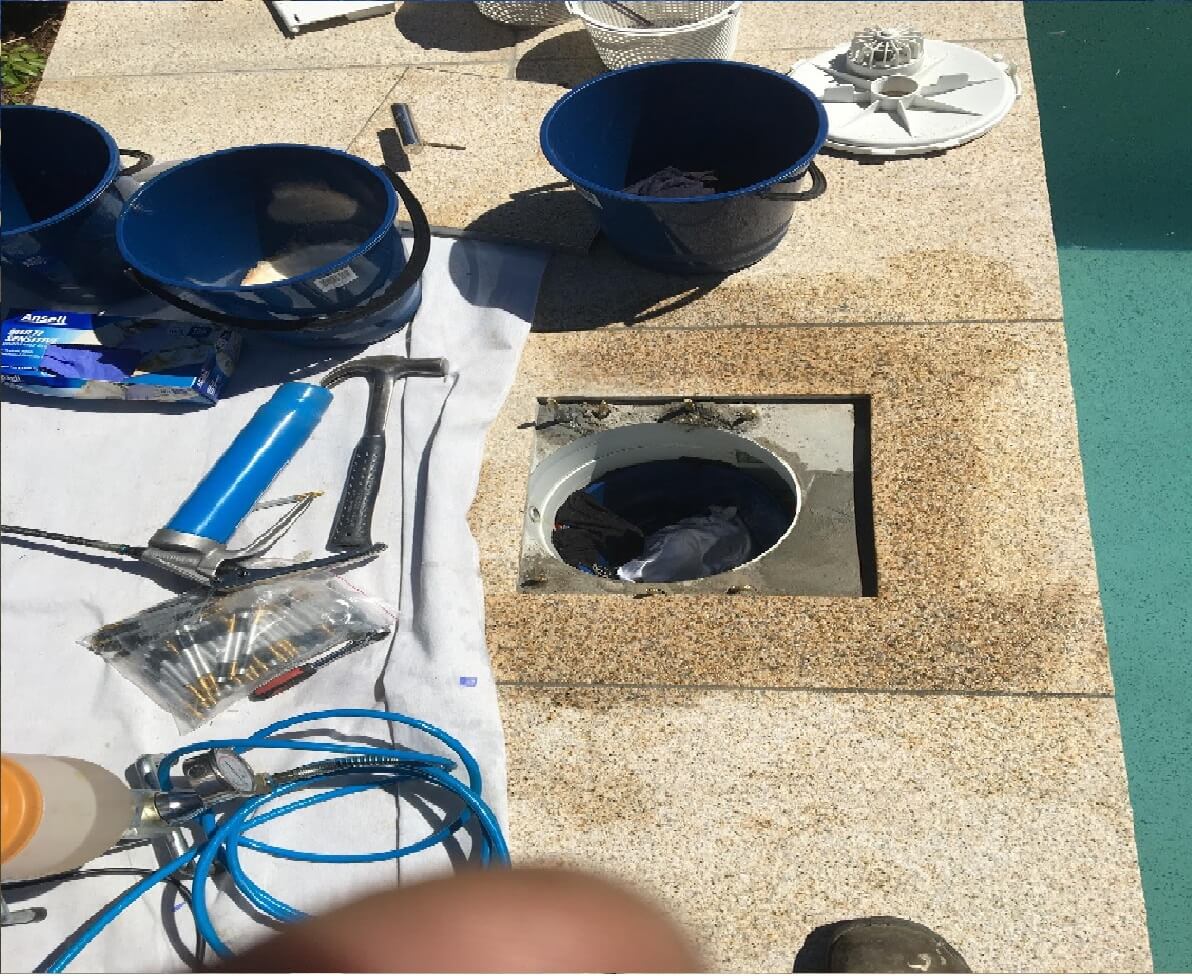
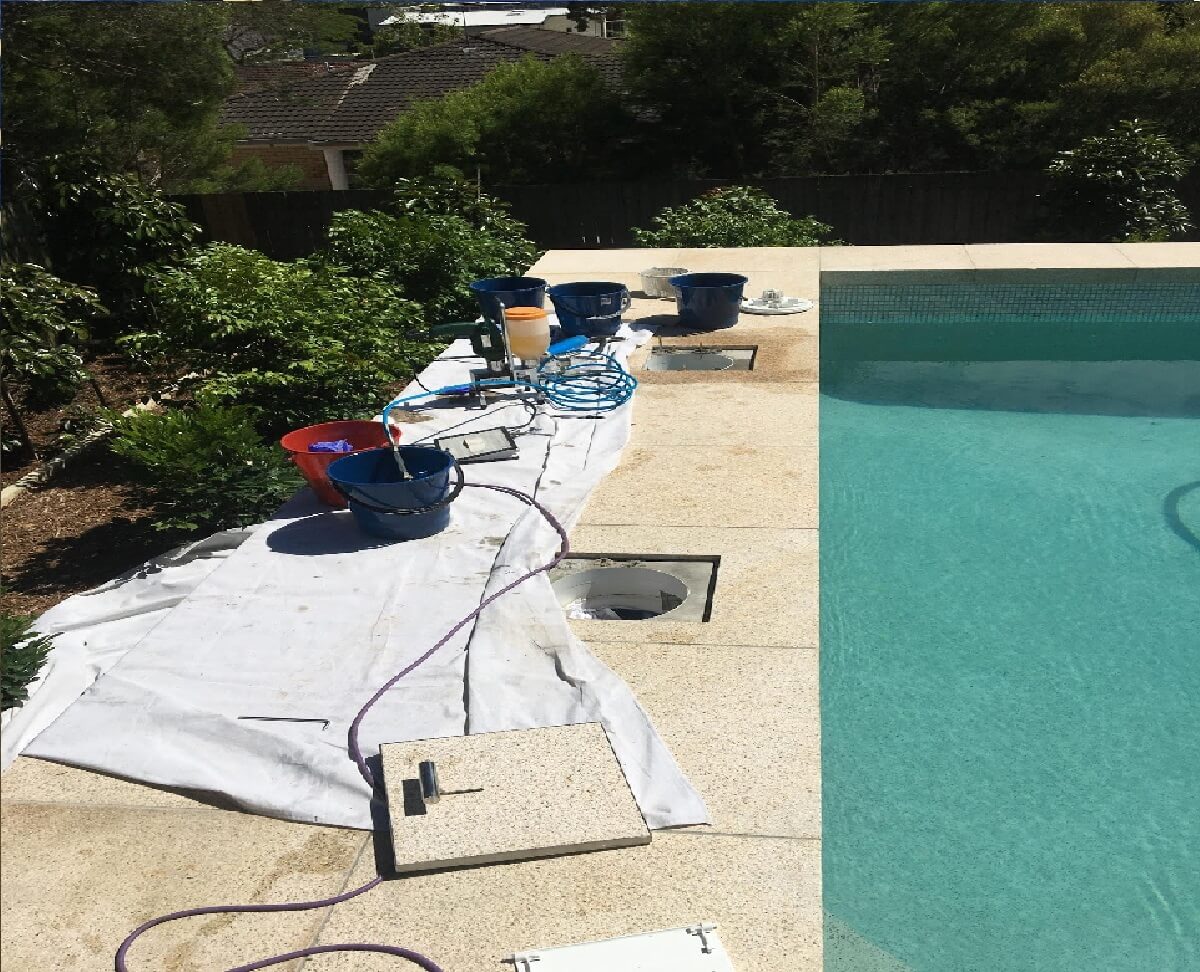
We have had success with leaking pools. The skimmer box continuously leaked, we were able to stop the leak with no mess.
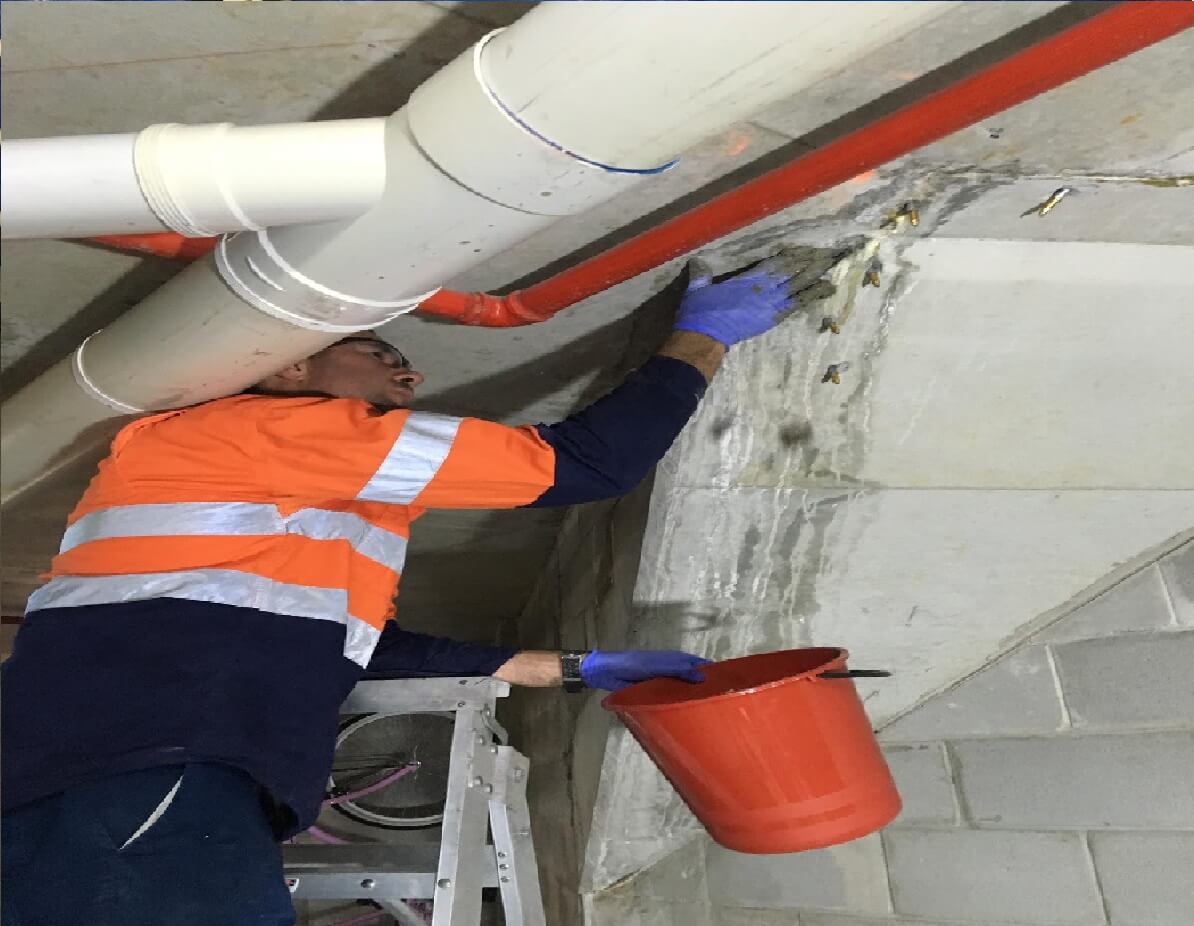
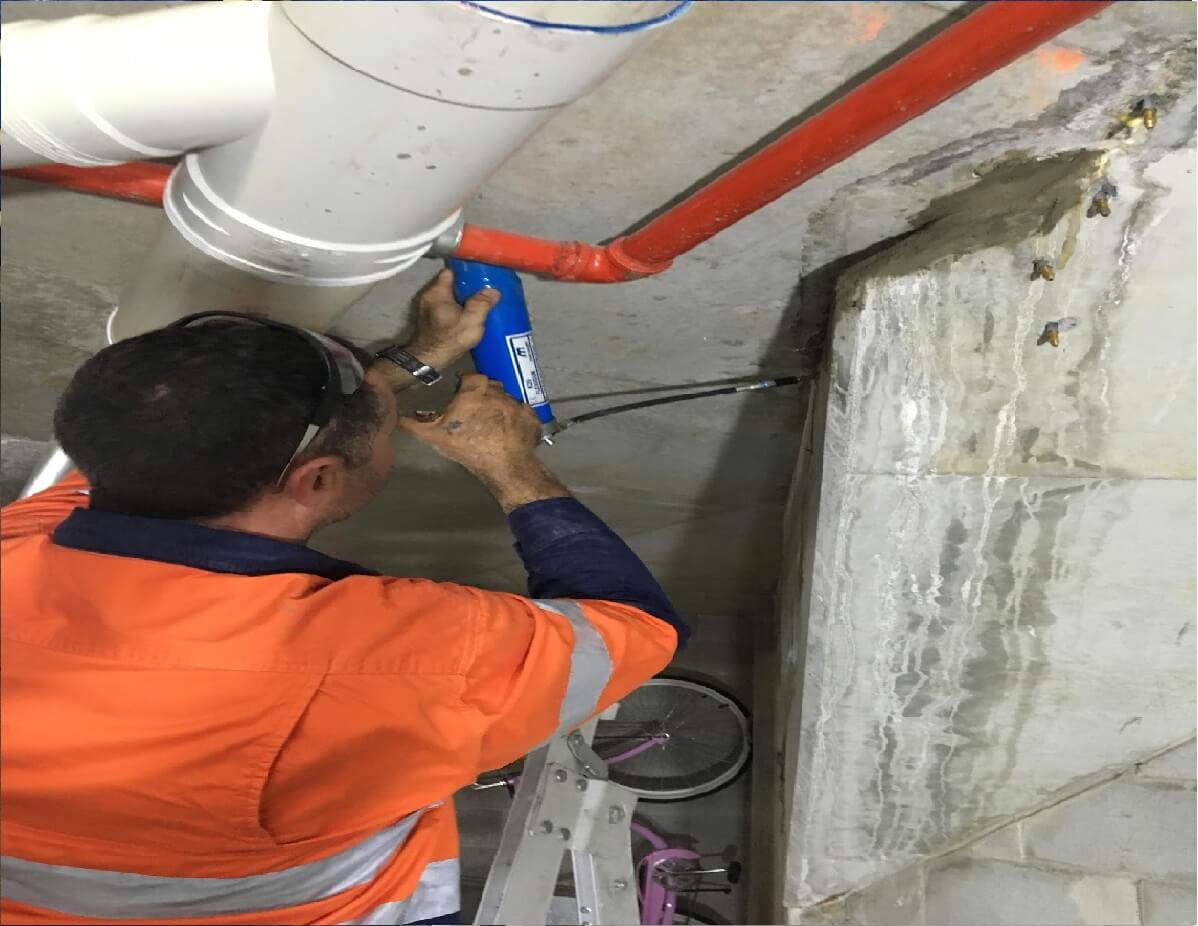
Leaking podium slab in a unit complex on the gold coast. We also sealed around suspect areas on the surface.
